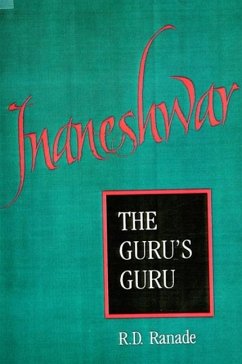Thirteenth-century India saw a huge revival of religious devotion among the common folk, similar to the waves of religious fervor that swept over late medieval Europe. One of the pillars of this revival was the poet-saint Jnaneshwar, author of an exquisite commentary on the Bhagavad Gita. Like his contemporary Dante, Jnaneshwar was a poet of the vernacular, who wrote in Marathi, the language of ordinary villagers, rather than the Sanskrit of the brahmin orthodoxy. Over the centuries, the Jnaneshwari, as his commentary is known, has become a scripture in its own right. Expanding the Gita's seven hundred verses to approximately nine thousand, and using the images of ordinary life to explain its lofty teachings, Jnaneshwar fashioned from human language one of the most sublime visions of the Absolute that has ever been put into speech. The Jnaneshwari is one of the marvels of world literature. The greatest study of the Jnaneshwar is still this work by the philosopher R. D. Ranade, originally published in 1933. In addition to being a renowned scholar, Ranade was also a mystic and an initiated disciple, and he brings all these broad currents of the Indian tradition to his analysis of the Jnaneshwari. Readers who are sometimes intoxicated by the richness of Jnaneshwar's imagery, will appreciate the way Ranade has here uncovered the work's inner structure, and how he has briefly summarized its approach to the Gita's great themes: action vs. renunciation; devotion and dharma; the form and the formless aspects of God; and the subject dearest to Jnaneshwar's heart, the nature of the spiritual Master. This book also includes Ranade's study of Jnaneshwar's abhangas, his religious songs, as well as an analysis of his magnificent Amritanubhav, "The Nectar of Self-Awareness," an inspired synthesis of Samkhya and Shaivism.
Hinweis: Dieser Artikel kann nur an eine deutsche Lieferadresse ausgeliefert werden.
Hinweis: Dieser Artikel kann nur an eine deutsche Lieferadresse ausgeliefert werden.








